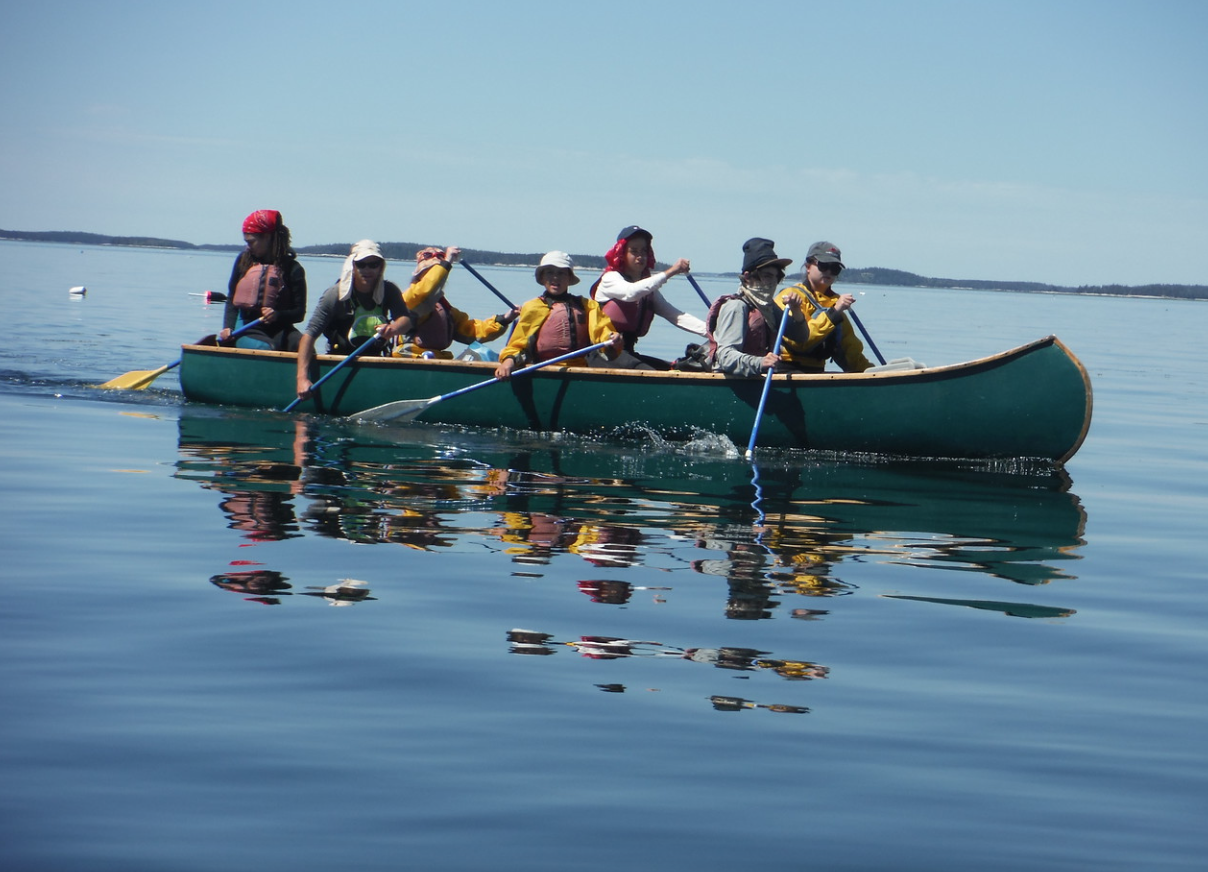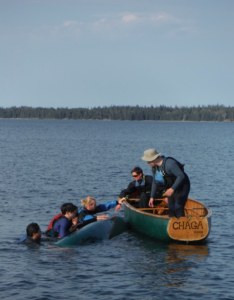The Eighth Grade Trip
“Receive the children in reverence, educate them in love, and let them go forth in freedom.” - Rudolf Steiner
At some schools, a year-end trip is a reward for a busy year or an academic accolade. These trips take place at amusement parks and sometimes even beaches. Their purpose is relaxing, fun and socialization. While the Waldorf School of Philadelphia Eighth Grade class trip has plenty of joy and social experience, it’s not about fun socializing. Nor is it simply a reward for graduating. It is the final curriculum-based project for Eighth Graders, and it has been developed and carried on as a challenging rite of passage for students letting go of childhood and embracing young adulthood. So what are the mission, purpose, and lessons learned during the Eighth Grade trip? (A trip taken by Waldorf Eighth Grade students around the world.)
Mission
The Eighth Grade trip is a culminating experience crafted with the unique Waldorf curriculum and child development at the forefront. It brings together curriculum, community, and challenge to allow students to use their knowledge, test their abilities, overcome their limits, and expand their perspective.
Purpose
It may be lofty, but the purpose of the trip is personal transformation.
More specifically, it serves as a transformative bridge from childhood to adolescence. Remember when your little one crossed the bridge to First Grade and received their rose on their first day in the Grades? There is no longer a metaphorical structure students can meaningfully cross within the school. Older students want and need to cross a real threshold of experience. Adolescents crave experience out in the wider world.
The class trip symbolizes not just the transition for the students, but the inherent limits of the lessons taught within school. As a school community, we say as we send them off, “Go forth beyond our walls and find your strength. Use what we have taught here in a real world application.” The class trip provides a guided and supportive first foray into their world beyond the school’s loving, protective walls, while still offering support.
Teacher Allison Wall at Upper Valley Waldorf School agrees, “I chose [an outdoor] trip because I feel that children deserve to feel challenged, and to overcome that challenge. An adventure like this builds confidence and a sense of self. I think feelings of nervousness are natural; it's a big adventure.” Nervousness is a good thing. Supporting the children is essential, but reasonable risk is also essential if lessons are to be learned.
Lessons
In the age of vanishing free play, where every learning moment is scheduled, we have lost sight of the value and power of risk. The word risk may even concern many and conjure thoughts of skydiving or cars careening down country roads at night. But calculated risk reaps predictable reward. Waldorf students on the Eighth Grade trip are offered new and difficult challenges they have not likely met in their ordinary existence. This is intentional.
As Eighth Grade teacher, Euclides, from River Valley Waldorf School explains, “Many students in my class were creatures of comfort and this [outdoor] experience gave them what they truly needed. I think as a group they became closer, and for some it was a transformative experience.” The risk is reasonable, but never contrived. Risk always comes with a potential for failure, or it is not true risk.
By engaging in real yet reasonable risk, the child reaps rewards.
This is why most Eighth Grade trips involve outdoor education and adventure, in which students must encounter and move through new, difficult, and sometimes intense experiences. Experiences like being wet in the rain, being hungry and having only new foods to eat, truly depending upon classmates for accomplishing objectives, or feeling mentally and physically exhausted by the demands of the day. The rewards come in accepting and meeting each of these challenges and coming to appreciate their gifts: enjoying a warm fire, new food, well-earned comradery, and a cozy sleeping bag. The children are uncomfortable, challenged, and must perform to survive and thrive. This builds real confidence and empowerment.
Eighth Grade teacher Lisa Walser, at the Waldorf School of Peninsula, saw firsthand what this type of experience does for adolescents.“It was a remarkable experience for the students, and for myself, as their class teacher. Our guides presented calculated risks for the students in such a mindful way that the students felt empowered in the moment, and left the trip more conscious of the world and their place in it. For example, one student was in charge of collecting water on the islands. They found a water source and filled all of the student and adult water bottles each day. If they did not do their job, we would have been thirsty. There was a risk that they wouldn't complete their task. Since we were all counting on this student, they did their job diligently and with grace. The same occurred for other students tasked with such skills as kitchenware management, fire making, toilet set-up, and navigation. Each student took their job seriously, and after being trained in their task, spent the rest of the week working as a cohesive member of the group. This authentic experience brought heart, enthusiasm, and full engagement. It was a wonderful ending to a Waldorf class culmination of the eight-year journey.”
Many social-emotional lessons come from the trips as well. It is their final journey together as a class, together and with their teacher, and it serves as a powerful vehicle for closure. It is likely that the students come to the end of their elementary schooling feeling fear and bravery, joy and sadness, a longing to be comfortable and desire for challenge. They also know one another very well and have witnessed each others feuds, follies, and friendships. They are confident and comfortable together and wondering if they can handle breaking apart and coming together again with new friends and experiences.
The adventures of a class trip can help resolve and lay to rest old rivalries, deepen friendships, and broaden respect. The team building, with well-known friends during unknown experiences, also builds confidence for the future. Students learn that there will always be people that rely on them and that they rely on others for success. And they will experience that success, with dear friends at their side, and learn that the future is not to be feared.
Legacy
The Waldorf Eighth Grade trip will continue to be a mainstay of Waldorf education, just like the Rose Ceremony that comes eight years earlier. It simply cannot be matched by any other experience inside classroom walls. Its power to build confidence and character is unprecedented and it serves the children for a lifetime.
Photos and acknowlegement: The Waldorf School of Philadelphia is grateful to the wonderful people at Kroka Expeditions. We thank them for their leadership, professionalism, and wisdom, and for the amazing adventure they offered the Class of 2017 - a transformative and unforgettable experience. To find out more about Kroka Expeditions, visit kroka.org. Photography by Kroka.





